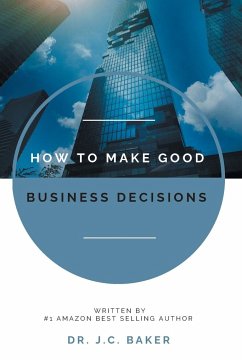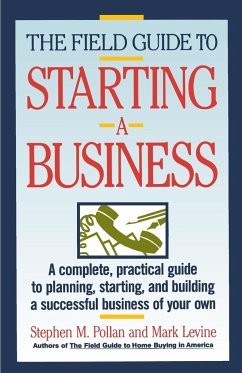We all face tough choices: business executives, community leaders, and family members all struggle with difficult decisions on a daily basis. What we decide reveals what really matters to us; how we decide determines whether we succeed or fail. Developed over twenty years in settings as diverse as hospital bedsides and corporate boardrooms, A Field Guide to Good Decisions provides the skills to make decisions that reflect your core values while respecting those of others, including the long-term implications for all participants. Illustrated through many real-life examples that will resonate with readers both professionally and personally, A Field Guide to Good Decisions offers practical tools and techniques for identifying individual and common goals, reaching consensus, and communicating the results effectively. The authors also show readers how to overcome common obstacles to good decision-making (psychological, cultural, and organizational). Ultimately, this book is about making decisions which, while not always a matter of life or death, nevertheless have a powerful effect on our sense of self, our credibility in the eyes of others, and the lives of those touched by the choices we make. Decision making is always personal. Each of us makes important decisions at work, in the community, and at home. When we face tough choices, what we decide reveals what really matters to us; how we decide determines whether we succeed or fail. Business executives, community leaders, and family members all struggle with difficult decisions: a senior management team makes an important choice about whether to pursue an acquisition; a baby-boomer decides whether to place an elderly parent in assisted living; a non-profit administrator considers laying off employees to have money and continue serving the community. For each, the steps toward a good decision are the same: know your values, engage others to understand theirs, and communicate with respect and candor. Simple in concept, not so easy in practice-but making a good decision demands nothing less. Developed over twenty years in settings as diverse as hopsital bedsides and corporate boardrooms, A Field Guide to Good Decisions provides the skills to make decisions that reflect your core values while respecting those of others, including the long-term implications for all participants. Illustrated through many real-life examples that will resonate with readers both professionally and personally, A Field Guide to Good Decisions offers practical tools and techniques for identifying individual and common goals, reaching consensus, and communicating the results effectively. The authors also show readers how to overcome common obstacles to good decision-making (psychological, cultural, and organizational). Ultimately, this book is about making decisions which, while not always a matter of life or death, nevertheless have a powerful effect on our sense of self, our credibility in the eyes of others, and the lives of those touched by the choices we make.
Hinweis: Dieser Artikel kann nur an eine deutsche Lieferadresse ausgeliefert werden.
Hinweis: Dieser Artikel kann nur an eine deutsche Lieferadresse ausgeliefert werden.








